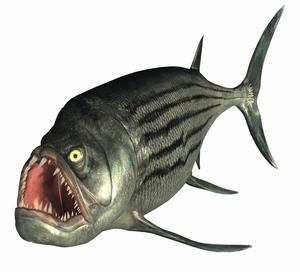 A star-studded musical collaboration is bringing English folk into the 21st century
A star-studded musical collaboration is bringing English folk into the 21st century.
In the unprepossessing surroundings of a converted corrugated-iron aircraft hangar in Wiltshire, a stellar group of musicians has assembled to reimagine what it is to be English. This is the first rehearsal for the Imagined Village, an ambitious project bringing together folk musicians including Eliza and Martin Carthy with established pop and rock acts - Paul Weller, Billy Bragg - and a flavour of multicultural England from Transglobal Underground, the British-Asian singer Sheila Chandra and the poet Benjamin Zephaniah.
Their aim is no less than to redefine our ideas about Englishness through their unique collaboration. "You shouldn't try to define Englishness, because it's personal," says Bragg. "The key to appreciating it is understanding how all these things come to be here at this particular time. Imagined Village is a snapshot of this, because it attempts to draw together some of the things that are part of the culture of England, in both a traditional and a contemporary sense."
The group are putting together an album that will be out this month, featuring ancient songs such as "John Barleycorn", "Tam Lyn", "Cold Hailey Rainy Night" and "Hard Times of Old England" given an Asian, dub, drum'n'bass, African and lushly orchestrated twist. It is an album that is restless in its affectionate exploration of the oral folk tradition. Such fusion projects always run the risk of going horribly wrong, but this is an enticing, intoxicating journey into England's past and future.
Musicians at the rehearsal include the cellist Barney Morse-Brown, the bass player Francis Hylton and the sitar player Sheema Mukherjee. Eliza and Martin Carthy are practising the album's opener - "'Ouses, 'ouses, 'ouses" - and "John Barleycorn" in one room, while the percussion section of Johnny Kalsi and Andy Gangadeen tackles complex backbeats, surrounded by cables and Mac laptops.
Chandra supplies accompaniment on "'Ouses . . ." and joint lead vocals on "Welcome Sailor", while Bragg offers a modern countryside-angst take on "Hard Times of Old England". Joining them later on in the week will be the celebrated English folkster Chris Wood, the Copper Family singers from Rottingdean in Sussex (John Copper provides the album's atmospheric opener, reminiscing about chalk downs and handing down oral traditions), the Dhol Foundation and the Gloworms, a new ceilidh squeezebox-and-fiddle trio who feature in a medley alongside their older counterparts Tiger Moth in "Kit Whites 1 and 2".
What they are trying to achieve in five days is ambitious, but even in a couple of hours Sheema Mukherjee, Martin Carthy and Morse-Brown seem to have mastered a unique instrumental version of "Scarborough Fair". They play it later as part of their set at the Womad music festival, accompanied by Billy Bragg, reading a paragraph or two from his book The Progressive Patriot - a "revisionist celebration of Englishness".
The project has been masterminded by Simon Emmerson, a DJ and producer best known for his work with the Afro-Celt Sound System and with African acts such as Baaba Maal and Manu Dibango. Emmerson was determined for traditional English music to assume its rightful place on the "world music" scene. "Until recently there weren't any English acts at Womad," he tells me when we sit down to a late lunch. "You would go to any world music festival and there would be music from all around the world - but not from England. Until five or six years ago there were English folk festivals in one corner and world music festivals in the other. I think Eliza [Carthy] broke that mould. She was the first one to say that we should be up there on the main stage, and it's now happening."
After a long career working with African musicians, he draws parallels between the two traditions. "The first vocal on the album is by John Copper, and in it he's referring back to his father and his father's father. He is evoking his family. In effect, they are the English equivalent of griots [the Malian musical dynasties] - they've kept the oral tradition going."
Bragg agrees. "What is English folk music if it isn't world music? The term itself is just a fancy name for a genre that often has its roots in tradition, which is what we're touching on here."
The ensemble will set out on an extensive UK tour in November. Unfortunately, Paul Weller is unlikely to appear, but his presence looms large on the album. He contributes to Tunng's "Death and the Maiden" and to "John Barleycorn" with Martin and Eliza Carthy. Another highlight of the album is Benjamin Zephaniah's bold reinterpretation of the old Scottish ballad "Tam Lyn". He turns an ancient story of phantasmagorical love involving a pregnant maiden and her bewitched changeling lover into a modern tale about a girl falling in love with an immigrant who's about to be deported: "There's no peace in my nation/I'm a war refugee/There are people in uniforms/Out to get me . . ./If you really do love me/Will you stay by my side?"
"I think Englishness is to do with mongrelness," the twice Mercury Prize-nominated Eliza Carthy tells me later. "This country has always been a nation of travellers. There have always been people here from other cultures, right down to the Vikings. I actually think that being English is living in a transient nation: people that live together and make this place their own. I know there are people here whose family was in the Domesday Book and all that kind of stuff, but my family are all gypsies. Gypsies and musicians - seven generations of musicians on Dad's side . . . on Mum's side no one knows, because they're all gypsies!"
Sheila Chandra is of Indian descent, and sang with the band Monsoon before forging a successful solo career. She believes she has been "completely absorbed into English culture", and disputes the idea that Englishness should involve inherited guilt. "Englishness isn't about Westminster. The people in Lancashire 150 years ago were being colonised by Westminster in exactly the same way as people in India were. So I think there's a ruling-class guilt that should be put in its correct place. I don't think there's anything wrong in celebrating English culture per se, as long as you're not using it to make a culturally superior stand against any other culture."
It is likely that the Imagined Village project will get a sniffy reception from some in the folk world. It is full of electronic manipulation, with a big sound that Eliza Carthy describes as "slightly Hollywood". But her father isn't worried about such negative reactions.
"Some folk musicians are scared of change," Martin says. "I think it's down to the fact that there is a real lack of confidence in this music, its resilience, and its ability to absorb anything. There's still this attitude that you must protect it, which comes from people like Cecil Sharp, who stated that 'this is a delicate flower, and if we don't take care of it now it will disappear'. Well, it's taking an awful long time."
Bragg sums up the Imagined Village experience when we discuss our Anglo-Saxon origins. "What sound could be more multicultural than Anglo-hyphen-Saxon? Tell me another nation in the world that's got a hyphen in their racial title. Even back to our earliest origins we've always been a mixed people, and we've always revelled in that mix."
"Imagined Village" is out on 10 September. A full UK tour starts in November. For more info log on to: http://imaginedvillage.com
Phil Meadley
 A council of peacemaking world leaders and Nobel laureates launched by former President Nelson Mandela is taking up Darfur as its first mission, with a trip to Sudan planned later this month, the organisation said Monday.
A council of peacemaking world leaders and Nobel laureates launched by former President Nelson Mandela is taking up Darfur as its first mission, with a trip to Sudan planned later this month, the organisation said Monday.



























